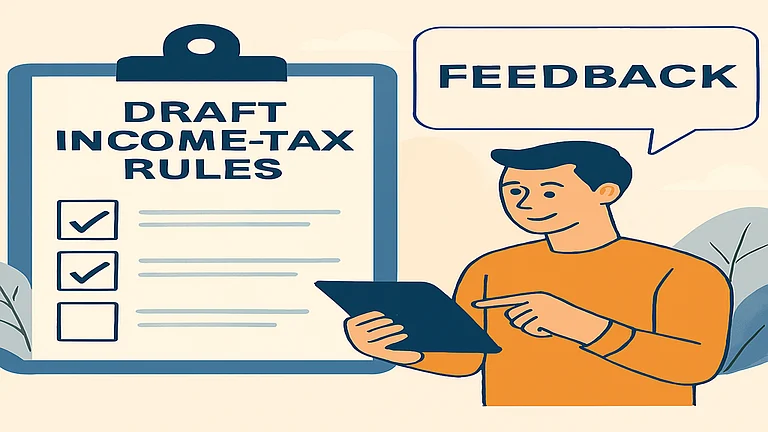If you are someone who wants to trade in the stock market, but do not have time due to office or other commitments, algo trading can come to your rescue but only if you choose a genuine platform. The Securities Exchange Board of India (Sebi) recently came out with a circular, asking investors to be cautious while dealing with unregulated algorithmic trading solutions being offered by some entities.
Algo trading is becoming popular. According to a research paper published by National Institute of Financial Management in 2018, algorithmic trading accounted for 50 per cent of the total orders on the Bombay Stock Exchange (BSE) and National Stock Exchange (NSE) on the client side.
Let’s understand what is algo trading and the things to watch out for.
What Is Algo Trading?
Simply put, algo trading involves the use of computer programs for stock market trading. “Algo trading is also known as black-box trading and refers to the use of automated pre-programmed trading instruments to account for various trading variables like price, timing, volume or any other mathematical model data and then execute the trade,” says Rachit Chawla, founder and CEO, Finway, a financial services company.
While a retail investor with computer language and coding knowledge can write an algorithm to execute their own trades, but they need to be registered as ‘authorised persons’ and comply with other regulations, says Manoj Trivedi, co-founder, Jama Wealth, a Sebi-registered investment advisor. Several brokers such as Fyers, Zerodha and others have their application protocol interfaces (APIs) that can be accessed by investors on payment of certain fees.
“The regulations around algo trading say that any program or algorithm deployed on the exchanges should mandatorily implement a set of risk checks. The platform should be vetted by an auditor and receive exchange approval,” says Sonam Srivastava, founder, Wright Research, a Sebi-registered investment advisor.
What Algo Trading Offers
Speed and automation: Trade-related data variables can be analysed by individual investors but that would take time and resources. Stock market trading happens between 9.15 am and 3.30 pm. Typically, this is the period when people are busy with work. Algos help reduce the effort and cater to people who are unable to dedicate time to trading.
One of the greatest advantages of algo trading is that all the calculations and analysis can be done in seconds and the trade can be executed at a much higher speed. Using algos also helps keep emotions out of investments.
"There can be various algorithms based on price, volume, timing or other strategies. When the requirements of the algo code are met, it automatically either executes the trade or displays the necessary action (buy/sell)," said Mohit Nigam, head, porfolio management services, Hem Securities.
Arbitrage Opportunity: Algo trading can help investors take advantage of arbitrage opportunities in the market that exist for a few seconds. Trivedi explains with an example, “Let us say, the current market price of a stock is Rs 99 on NSE and Rs 101 at BSE, assuming brokerage of 5 paise on each trade and assuming that an investor has money to invest, and holds the stock, she can buy the stock on NSE and sell on BSE at the same time (through algo trading), resulting in risk-free profit.”
Strategy Optimisation: Every stock market trading strategy does not work for all situations. Vivek Sharma, director (strategy) and head of investments at Gulaq, a part of Estee Advisors, says that machine learning/artificial intelligence involves training an algorithm to optimise the trading strategy based on vast historical market and other data sets. “Since markets keep on changing, we can’t rely on one set of algos to work in different market conditions. AI helps us optimise and update our algos based on new information,” says Sharma.
Algo trading also helps traders back-test and run their strategies multiple times in the live market to see the potential outcomes before trying them out for real.

Things To Keep In Mind
The Cost: Algo trading comes at a cost. Just because an algorithm is trading on your behalf doesn’t mean you don’t have to pay brokerage for each trade. Plus, there is a platform fee.
Just as the market develops every other second, the algos too may change their strategy frequently. Trivedi says this can make the impact cost of the trade (brokerage, others) higher since the higher the number of trades, the higher the cost.
Automation: Algo trading may help automate trade analysis, but it may play no role in the timing of the actual trade execution, which is a key factor. Sebi regulations do not allow automated trade execution by an retail investor. "An investor must be aware of the dangers associated with investing in a market (volality). An AI-based algo platform will not be sufficient to notify investors about these risks. Hence it may have long term negative consequences for a small investor," said Sethuratnam Ravi, founder and managing partner, Ravi Rajan & Co. LLP, a chartered accountancy firm.
Regulation: There are scores of unregulated algo trading platforms in the market. Instead of falling into the trap of misleading advertisements, investors should study, analyse and learn about regulated algo trading platforms and choose the one that works best for them.
“Most algo trading platforms are completely unregulated and investors have no recourse in case of mis-selling, errors or any manipulation by the algo providers. We strongly support Sebi’s intent to bring these platforms within a regulatory framework,” says Sharma.













